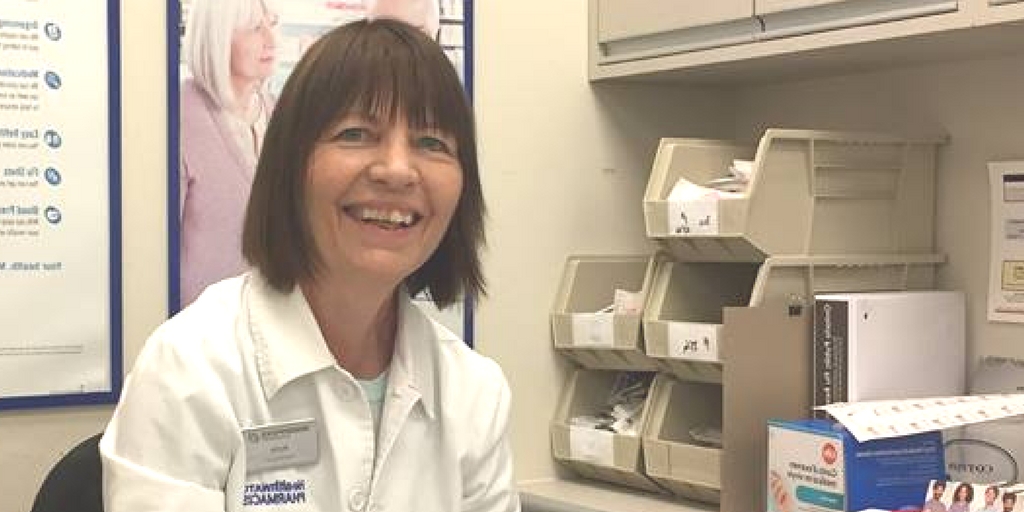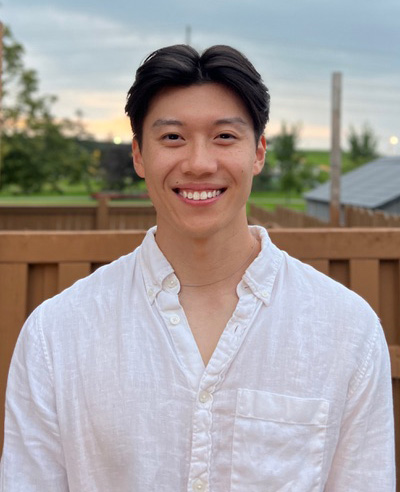Ruth Ackerman’s story inspires the kind of work the Breast Cancer Society is funding. We hope you will also find inspiration in her story and donate to life-saving breast cancer research, because Research Matters
Ruth Ackerman became a pharmacist because she always was good at chemistry and math and the curriculum looked interesting. “I have never dreamt of inventing any magical pill,” she says smiling. “But my education helped me enormously in my cancer journey. As both a pharmacist and cancer survivor, I know firsthand how important research is.”
“We need research to gain evidence that something works. Yet, it is equally important to make sure that something does not work in the way we hoped it had to.” Read Ruth’s story, a 17+ year survivor of triple-negative breast cancer, she know why research matters.
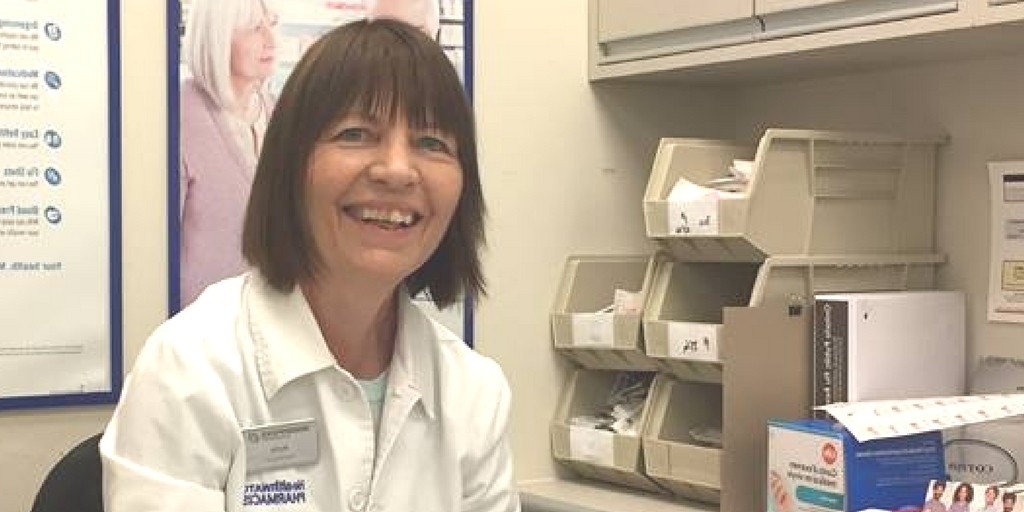
It all began in 1999, when I asked my family physician if I could go on birth control pills. “You are in your 40s now, and I want you to have a mammogram before you start taking the pills,” she answered. The mammogram was fine. After just a month, however, I found a lump in my breast. “That’s weird,” I thought, but I was not worried much as I had just had a clear mammogram. But when I found a lump in my armpit a couple of months later, I was quickly in the surgeon’s office to have a biopsy.
He did a fine needle aspiration biopsy, showing cancer cells. Because the tumor was large – 4.5 cm – I underwent a full mastectomy. I had 20 lymph nodes removed as well, and 17 of them had cancer cells. Shortly after that, I was given a diagnosis of invasive ductal carcinoma, stage III. The pathology report showed that the tumor was estrogen-receptor-negative, so I had no hopes for hormonal therapy. My treatment plan included 6 months of chemotherapy and then 7 weeks of radiation. My breast cancer was very aggressive, and they treated it aggressively.
Then and now Ruth had triple-negative breast cancer (TNBC) – one of the most dangerous types of the disease, which is negative for estrogen, progesterone, and HER2 receptors. But at that time Ruth did not know yet that her disease is called TNBC. The HER2 testing was not used as routinely then as it is currently. Ruth’s test for HER2 was performed in 2004, and result came back negative. Patients now in the same situation often start their treatment with chemo before having surgery. It has been proven that such a regime shows better results in treating TNBC. Research matters.
Because my tumor was so aggressive, I was referred to a researcher who explored high-dose chemotherapy with stem cells transplant in breast cancer. At the time, this regimen was showing good results in treating high-risk breast cancer; however, it was a controversial and undeniably toxic treatment modality.
While I was eligible to have the treatment, I was very worried about it. From a pharmacist standpoint, it seemed right, but I did a lot of research and realized that I could die from the treatment itself. And frankly, after 2 rounds of chemotherapy, I didn’t know how I would continue to work at my job if I went through with even more toxic treatment. After much thought, I said, “No, I want to do regular chemo.” Researchers later concluded that stem cell methods work well for blood tumors, but not for solid tumors like breast cancer. The high-dose approach to treating breast cancer was debunked.
Obviously, any chemotherapy may cause various side effects. I remember my physician telling me that he was going to drop my chemo dose to 75% as I had experienced protracted febrile neutropenia and had been hospitalized. After he saw the look on my face, he said, “I don’t want to kill you, Ruth. What I am trying to do here is to cure you.” I think that was the first time he said “cure”. It sounded extremely encouraging.
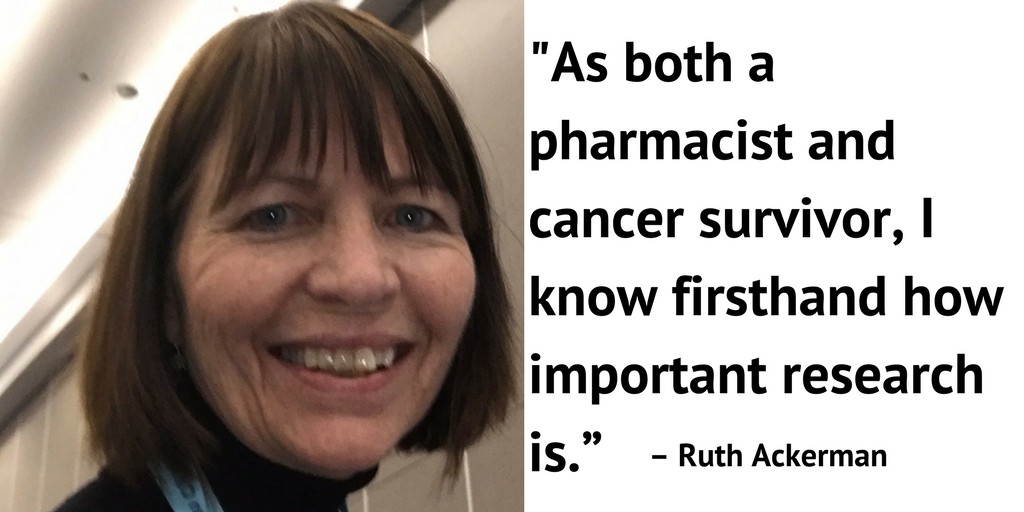
I am aware of how insidious cancer is. When I was diagnosed with cancer a second time, part of me was like “I know this.” It occurred in the same area which had been irradiated in 2000 and getting a proper biopsy proved difficult. After 4 months and 2 biopsies, I was told my new tumor was malignant on Christmas Eve. It was hard. My reaction was, “Ok, so then get it the hell out of me!” The tumour was completely excised 3.5 long months later in 2016, and I hope to never have to face cancer again.
Then and now Breast cancer patients benefit today from more accurate strategies that have been put into clinical practice in recent years. One of them is new radiation regimens that use improved equipment. They cause fewer complications. A lot has been done as well to introduce such methods as trucut biopsy, MRI, PET-CT scan, HER2 routine testing, personalized targeted treatment, etc. Research matters.
What is one of the worst things about having breast cancer in your early 40s, which is when my cancer story happened? You feel pretty strong. You rely on your body and you feel perfectly fine. Breast cancer is tricky because there are no symptoms in the early stages. When you have been told you have “that thing” in your breast it is scary. It shakes your self-confidence. It changes a lot around you.
I like helping people and also value the help of others. I used the support of breast cancer support groups throughout treatment and beyond. There was a diverse group of many women. Some of them had been 20 years cancer-free. Some had been newly diagnosed or were currently in treatment. But they all were so warmly inviting and supportive. They inspired me to fight and gave me strength and support.
Later, as a Peer Support Volunteer with the Canadian Cancer Society, I provided telephone support to those who had breast cancer. During our conversations I was someone who had “been there” and gone through what they were facing. It is such a wonderful feeling to talk to somebody who is so scared and give them some hope! We would chat about everything. Strikingly, the number one thing we always started with was their question “What did I do to cause this?” The women said, “I had children, I breastfed them, I don’t smoke, I exercise, and here I have breast cancer. Why?”
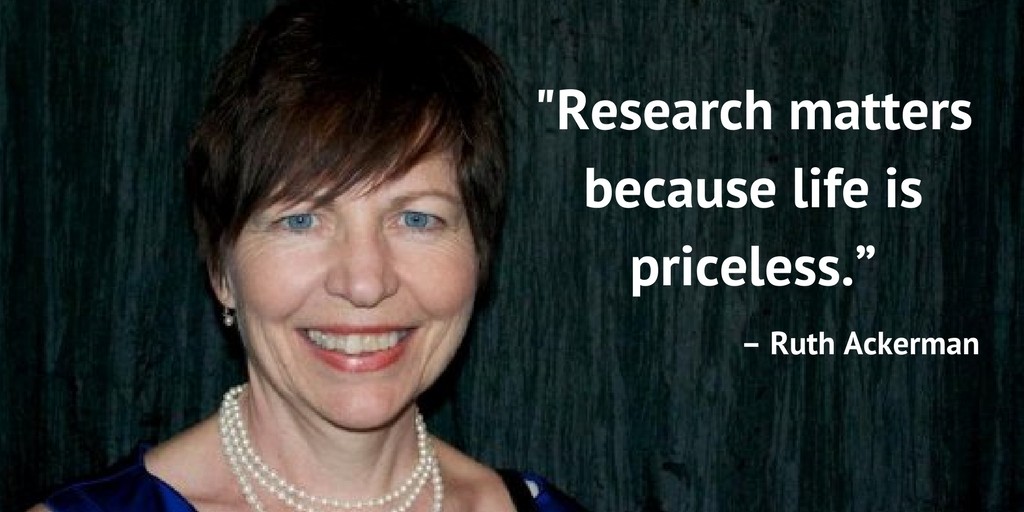
Researchers know a lot about what may cause breast cancer; however, there is still much that is unknown. I have a history of breast cancer in my family. My two aunts and grand-aunt had breast cancer, and one of my aunts was diagnosed at 42 (the same age I was at diagnosis) and died at 43. It happened very quickly. My grandfather had male breast cancer, which is very rare! My genetic tests showed a negative result though. Subsequently, due to the most recent cancer I had in 2016, I was again referred to do genetic testing and once again it came back negative. Whatever I had, it is not genetic. Although my second cancer was likely caused by the radiation treatments I received in 2000, my first one seemed to be just random. This is what we know now. I believe we are always learning more about the cause of breast cancer since research is constantly evolving.
Then and now In the 1990s, achievements in genetics opened up the prospect for genetic testing to recognize mutations in BRAC genes associated with breast cancer. Ruth underwent her first BRAC test in the early 2000s. In 2016, her geneticist suggested that Ruth redo it because the BRAC test used in 2000 gave many false negatives. Since then, the technology has rapidly improved, and patients can now do more precise genetic testing. Because research matters.
As a pharmacist, I truly believe in research. Research is expensive because researchers must make sure that their research is accurate and always have to check and double-check the data. They need to have a significant cohort of patients to make sure that what they are researching they are getting right. I’ve been disease-free for more than 17 years. Research is a key for cancer patients because it gives them hope.
“Research matters because life is priceless.”
– Ruth Ackerman
Your donation to The Breast Cancer Society of Canada will help fund breast cancer research. Give today, help save lives by supporting life-saving breast cancer research because, Research Matters.
Ruth’s story was transcribed from interviews conducted by BCSC volunteer
Natalia Mukhina – Health journalist, reporter and cancer research advocate
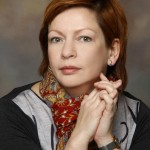
Natalia Mukhina, MA in Health Studies, is a health journalist, reporter and cancer research advocate with a special focus on breast cancer. She is blogging on the up-to-date diagnostic and treatment opportunities, pharmaceutical developments, clinical trials, research methods, and medical advancements in breast cancer. Natalia participated in numerous breast cancer conferences including 18th Patient Advocate Program at 38th San Antonio Breast Cancer Symposium. She is a member of The Association of Health Care Journalists (AHCJ).

